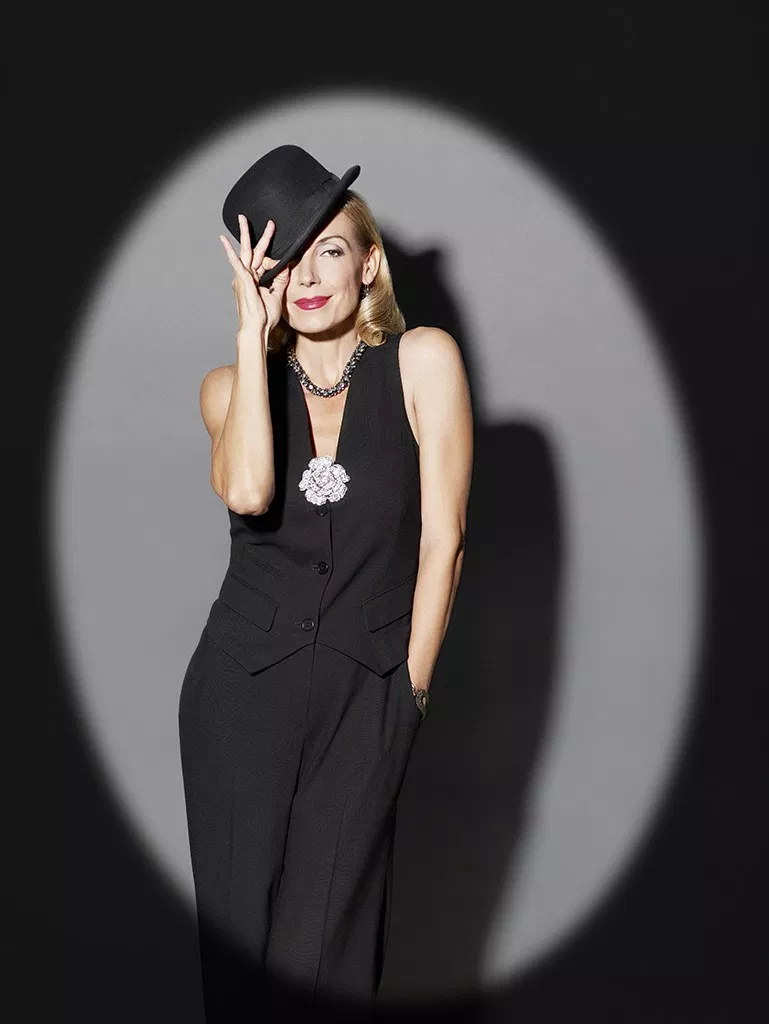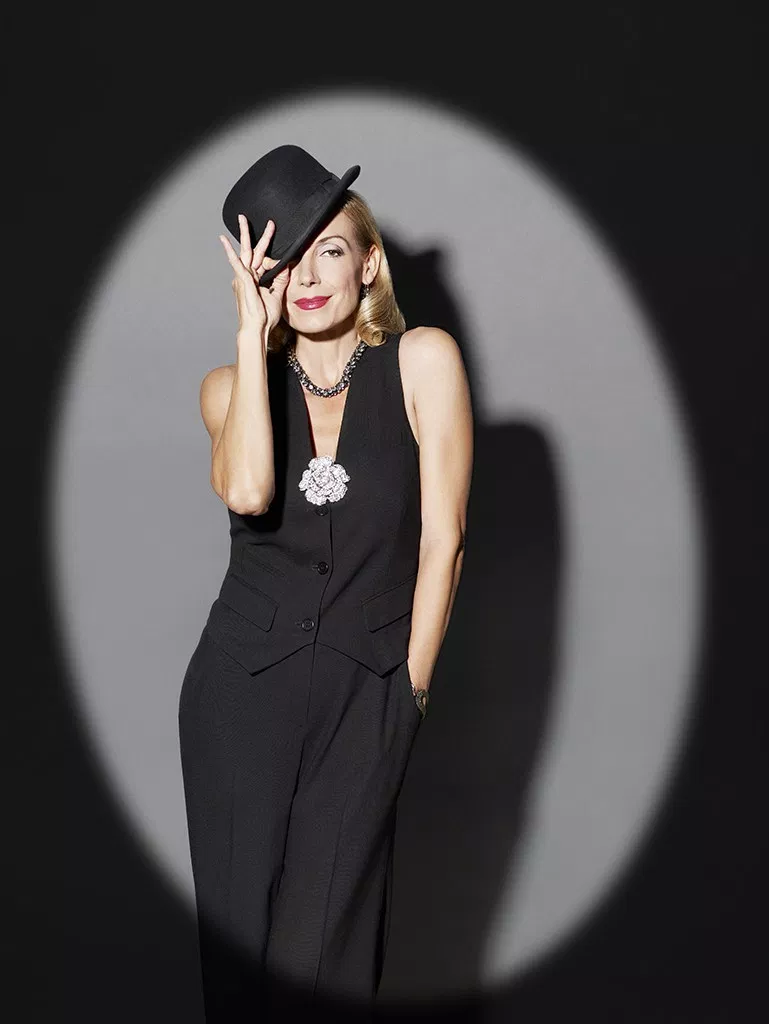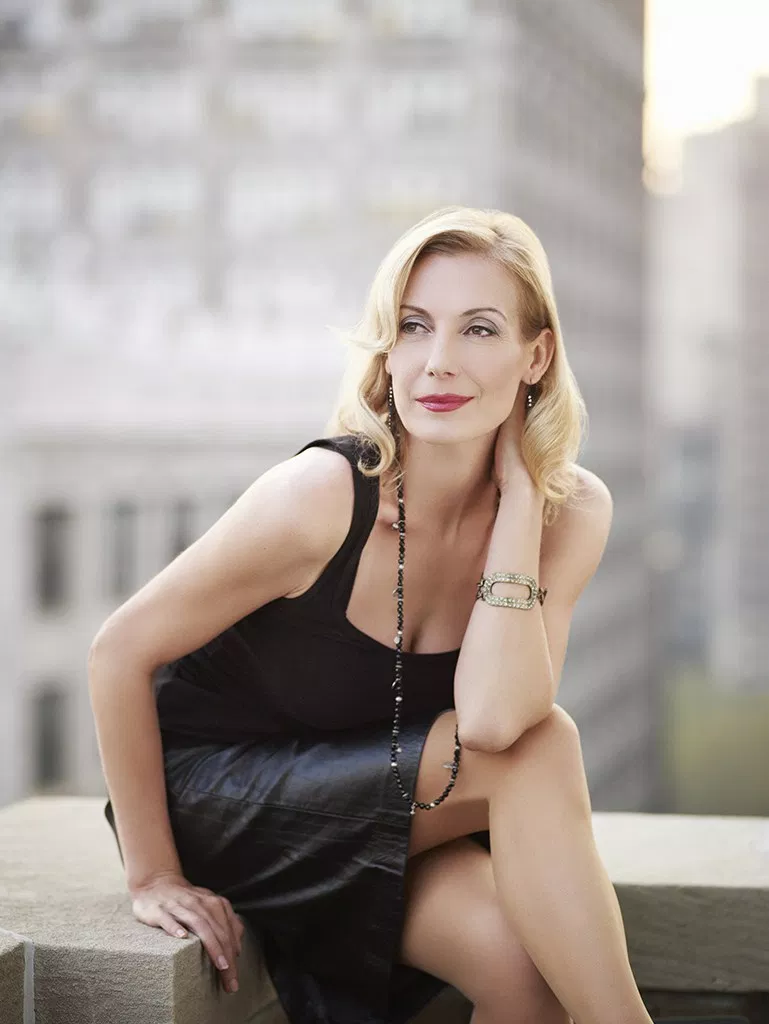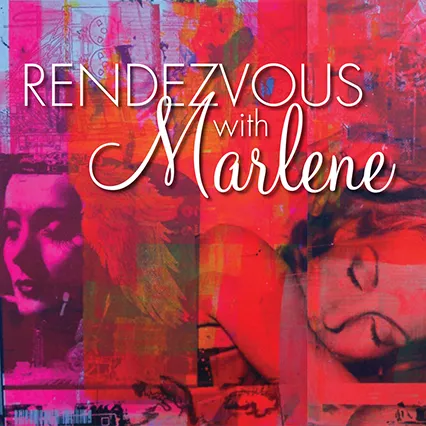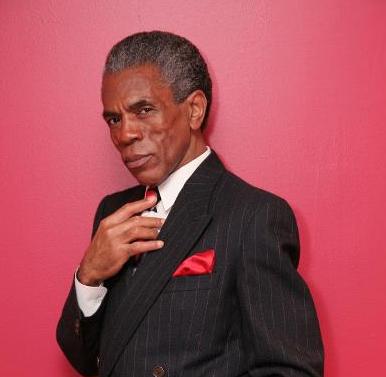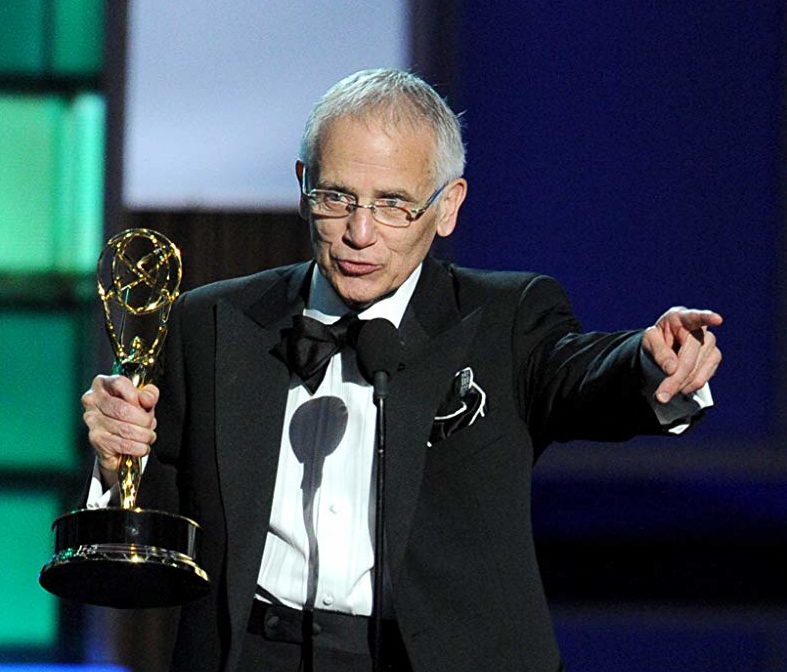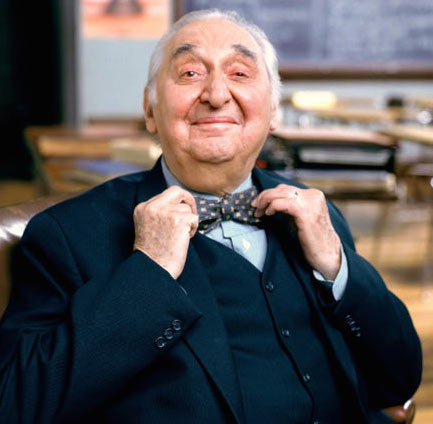by Ron Fassler
I recently had the pleasure of putting a few questions to the versatile singer and actress Ute Lemper, who is bringing her cabaret show Rendezvous with Marlene to Feinstein’s/54 Below for two nights only, November 27 and 28. The German born Ms. Lemper (who has often been compared to Ms. Dietrich), has performed the leading roles of many Broadway musicals in their international premieres, such as Cats (Vienna) and Chicago (London). Her extended contralto can be heard on the thirty CD’s she has recorded over the past thirty years.
Here are some highlights from the interview:
Ron Fassler: You have based your new cabaret show on a three-hour phone call between you and the late Marlene Dietrich in Paris thirty years ago. It began with you sending her a postcard, and then one day, you picked up the phone—and there she was. Could you ever have dreamed you would have had a conversation that lasted three hours?
Ute Lemper: It was an unbelievable moment. I had to sit down… wanted to scream in wonder… and yet was so humbled and honored. I was alone in my hotel room and just wanted to share this with someone. I wished I had been prepared… with burning questions and more detailed information about her life and movies. But at the time it was a conversation between a very young curious German actress living and working in Paris and a grown actress, a legend, with an incredibly rich life story and career, an inspirational free spirited woman to many generations.
We talked and talked, well mainly she talked… I did ask many questions… but she just took off. In the middle after a good hour she had to do something, she said a plumber was there to fix the sink (I think she made that up. Maybe she needed to go to the bathroom or pore herself another drink).
RF: Though you are both native Germans, you were born decades apart. In your research and discoveries over the years, or even in that phone conversation, what were (if any) the similarities you shared as young women?
UT: We are both kind of Expatriates and have a complicated relationship with our birth land. I lived many years in Berlin… the Berlin of the cold war, the eighties… and my years as a young actress in this divided Berlin has had a huge impact on my artistic and personal identity. I think Marlene also always had a piece of Berlin inside of her in her interpretation of 35 Hollywood movie roles. It is this expressionistic sense of crude reality with a political awareness and a scream in art of pain and longing. She lived in Berlin before the war ended and I lived in Berlin after the war had ended. It was tough to deal with the German history that was put into my cradle… Nazi Germany and, of course, the most unbearable fact of the Holocaust. Marlene wore the same scars, inflicted in earlier times as a witness of the war, and a witness to the German Righteousness after the war.
I started recording the cycle of Kurt Weill and Berlin Kabarett albums at that time in 1987, which defined my connection to the Weimar time as a protagonist of the songs of Jewish exiled composers in hundreds of concerts all over the world. In 1988, I sang the songs of Hollaender and Spoliansky that Marlene had sung in 1928. I was the first German to re-record this repertoire after the war.
RF: As a young girl growing up in Berlin, do you remember when you first became aware of who Marlene was? Or was she such a ubiquitous presence in German culture, that any young person would have known who she was?
UT: She was a mystery… a glamorous Hollywood actress… but also a statue, frozen in stylism. A myth. Her German story was not rarely talked about. There were some dark clouds adorning this legacy.
RF: What is it about Marlene Dietrich that fascinates you?
UT: I care about her story. Rendezvous with Marlene is the story I want to tell… There are many stories out there about her… this one is my personal homage … I tell the story through my eyes and sing her songs with my voice… I am not really impersonating her, nor imitating her, but she is rather using my body and voice to speak.
Marlene was a groundbreaking woman. She was a free spirit, sexual, seductive, yet masculine, androgynous, totally polygamous in her open marriage. She was politically and morally outspoken and courageous. She was ladylike and bossy at the same time… she had class, but loved whisky, dirty jokes and a good smoke. Billy Wilder said she was a heck of a guy to hang out with.
RF: Can you discuss some of the complicated relationships both of you have had by way of your German heritage?
UT: After the Germans rejected her in 1960, treating her as a traitor to the fatherland, having been a soldier for the U.S. Army during World War II, she said “the Germans and I no longer speak the same language.” She never was welcomed back… only in her coffin… and not even then.
Only 100 years after her birth, the Germans embraced her again. This is Berlin in 2001. Finally, the city dedicated a big Square to her: the Marlene Dietrich Platz.
This is a complex subject and also reflects modern times of Nationalistic movements and populism. These feeling are deeply engrained in the societies, a self-righteous arrogance that poisons the mind of our societies. As if people never learn? Marlene had said it did not take much brains to be an anti-Nazi, but still until 1990, many Germans did not forgive her to have chosen the other (obvious) side; the side of the Americans.
RF: Since you are singing many songs Dietrich used to sing in your show, where do her favorites fit into your catalogue of favorites?
UT: “Sch, Kleines Baby” (“Hush Little Baby”), “Where Have All the Flowers Gone (Pete Seeger), “Blowin’ in the Wind (Bob Dylan), “Ne Me Quitte Pas” (Jacques Brel), “Laziest Gal in Town” (Cole Porter), “Falling in Love Again” (Friedrich Hollaender), and many others.
RF: Can you talk about the importance of Vana Gierig and the other musicians with whom you have had long associations?
UT: I have worked with Vana for 15 years. A wonderful friend… and incredible pianist… we actually invent most of the arrangements in collective creative rehearsal situations. We are always a team. All the musicians are my kings and brothers and sisters.
RF: Finally, what would you want someone to take away with them about Marlene Dietrich, who might never have heard of her before the curtain goes up on your show?
UT: Oh, you are in for an incredible story… history, fate, courage, style, politics, glamour and sex, talent and a huge career in a devilish dance around the fire between Berlin and Hollywood, youth and age.


